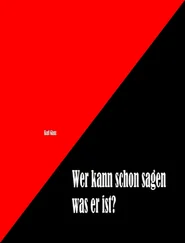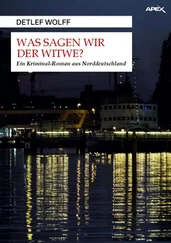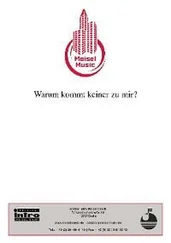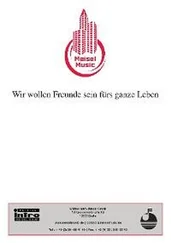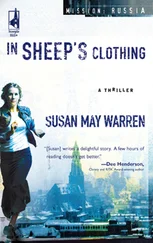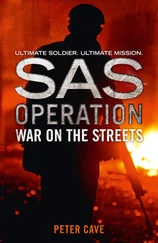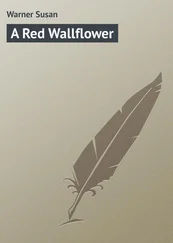Locusts shrilled in the midsummer Chechen heat. The landscape rose and fell in unruly heaps of green around decaying homes and farms. Dilapidated houses lined the town’s deserted main street. He saw punched out windows with torn curtains and, farther on, burned-out buildings and piles of rubble. A fire-blackened Russian truck lay upside down, its undercarriage looking like the exposed belly of a giant scorched bug. Six corpses lay scattered around it.
The Russian Zakayev had just killed brought the total to seven. There were at least five more Russians trapped in the barn. The evidence of their crime was in plain view: On the side of the barn in which the Russians hid were the naked crucified bodies of a young Chechen woman and her infant. The Russian soldiers had raped the mother, then nailed her and the child to the side of the barn, driving long iron spikes through their hands and feet. The pale corpses hung, spread eagle, from the weathered planks. Zakayev and his men caught the soldiers standing around the barn laughing, smoking, drinking vodka.
Hit by an RPG, their truck had roared into the air and crashed back to earth in a ball of flame. The dead lay where they had fallen, twisted, formless, some headless. The others had put up a brief firefight from inside the barn but knew it was hopeless.
After they surrendered Zakayev, made them take the woman and child down and dig their graves. Then, while the Russians, herded back-to-back in a circle, begged for their lives, Zakayev tied them up like a bundle of cordwood. After they were thoroughly doused with gasoline, he set them on fire.
“Ali?”
The mention of his name jolted him from the memory of that day.
“Fighters! You have proven your dedication to the battle for Chechen independence,” Zakayev said. “We are fighting a war that we will gladly sacrifice our lives to win. There are still more battles to come, and because our work here is finished, I am releasing you from my command so you can return to Chechnya. There you will organize yourselves, form new cadres, and prepare for the collapse of Russia. When the collapse comes, it will come quickly, perhaps within days. Regional pro Russian administrators will try to maintain stability in Chechnya, but they and their puppet prime minister will fail because Russia as we know it will cease to exist. Align yourselves as quickly as you can with the new forces of independence that will emerge from the old regime. They will be Chechnya’s future.”
Each man made a short, awkward speech and renewed his vow of loyalty to Zakayev. The girl produced a bottle of vodka. She filled glasses, jars, and tin cups, which the group, Muslims drinking Russian vodka, raised to toast Zakayev. “Za vashe zdarov’e!” Afterward each man had a private moment with Zakayev before departing. The man with the black band around his head waited until the others had departed before speaking to Zakayev.
“I volunteer to stay behind, General, to make sure that Serov is dead. If he’s not, I will kill him.” Zakayev poured the man another vodka and one for himself. “Forget Serov. He can’t stop us now. No one can. Go back to Chechnya with the others.”
“It has been a privilege to serve with you, General. Perhaps someday you will visit Grozny and I will have a new wife and children to present for your blessing.”
“Yes, someday,” Zakayev said. He thought about what he himself had lost and what this man might gain. “Name one of your children for me.”
The men loaded their gear in two cars and departed. One by one, the girl began shutting off the lights in the shop. The man who owned the shop, a Chechen, was due to return from a visit to his wife’s family in Pskov and scheduled to reopen for business in the morning without having laid eyes on Zakayev or his men. Or knowing that a freshly dug grave behind the shop had been hidden under parts from wrecked automobiles.
Outside, Zakayev looked at the girl. The backpack hung from her thin shoulders. She had tied her hair back in a long ponytail sticking out from under a knit cap pulled down over her ears. To Zakayev she was just a beautiful child. “Are you afraid?” he asked.
“Afraid of dying?”
“That too.”
She kissed his cheek. After a last look around the shop, she closed and bolted the door.
The flesh looked cold and hard like alabaster. Scott didn’t touch it, just observed while the technician held up one end of the sheet like a tent flap.
He almost didn’t recognize Drummond, which made his task bearable. With several days growth of beard—patchy gray stubble like iron wire—sprouting from a face with a pair of badly sunken cheeks, Drummond looked like he’d been hauled out of a Moscow gutter. Scott imagined Vivian waiting patiently in Falls Church to deliver Drummond’s dress blue uniform, freshly pressed and in a plastic bag, to the funeral home.
Scott examined a small hole in Drummond’s left temple plugged with cotton stained pink. On the opposite temple he saw a large bulge sutured shut with coarse black thread where, the attending pathologist explained, under a mass of brain tissue and skull fragments he had excavated for and found the bullet that had burrowed laterally through Drummond’s head.
Alex, hand to her mouth, hung back. “It’s him, isn’t it?” she said, unable to tear her eyes away.
“Yes, it’s him,” Scott said.
The morgue stank of death and antiseptic. It was a miserable concoction of cracked white and green tile and peeling paint. The only light came from fixtures hanging over the double row of stainless-steel autopsy tables, some of which held sheeted corpses waiting their turn. In a nod to the Americans, two aproned and gloved technicians had agreed to delay their work until the viewing was complete.
“He’s been autopsied,” Scott said, observing the long, sutured scar on the torso. “Why?”
The pathologist started to say something, but Abakov spoke up. “Standard procedure. We check to see if there could be contributing circumstances.”
“A heart attack or a seizure,” the pathologist added.
“It’s pretty obvious what killed him, isn’t it?” Scott said, motioning that the sheet should be lowered. “It would seem so,” Abakov said, “but there are strict rules we must follow.”
“Where’s the kid that they found with him. Radchenko.”
“Gone,” said the pathologist.
“What do you mean, ‘gone’?”
“Released to his family for burial,” Abakov said. “I can tell you he had a nearly identical wound to the head. Right-side entry but in his case the bullet exited on the left and did quite a bit more damage than you see here in Admiral Drummond.”
“Do you have the bullets?” Scott asked.
“I can get them,” the pathologist said, his eyes shifting to Abakov.
Abakov gave a nod.
They waited in silence for the pathologist to return. Abakov smoked, drawing it deep into his lungs. The smoke masked the faint odor of putrefaction lurking under one of the sheeted corpses on a nearby table. Alex looked pale.
The pathologist returned with a blue plastic Ziploc bag containing two small-caliber bullets. Scott dumped them into the palm of his hand. The bullet taken from Drummond, the pathologist explained, was almost pristine. The other bullet had been badly distorted.
“The bullet completely shattered the boy’s skull,” Abakov explained.
“Where’s the pistol these came from?” Scott said.
“Ballistics has it.”
“I have a question,” Alex, still looking pale, said. “During your autopsy, did you check for semen on or in cither body. In other words, could you tell if they had had sex? Did you find any…prezervativy?” she asked, using the word for condoms.
Читать дальше


